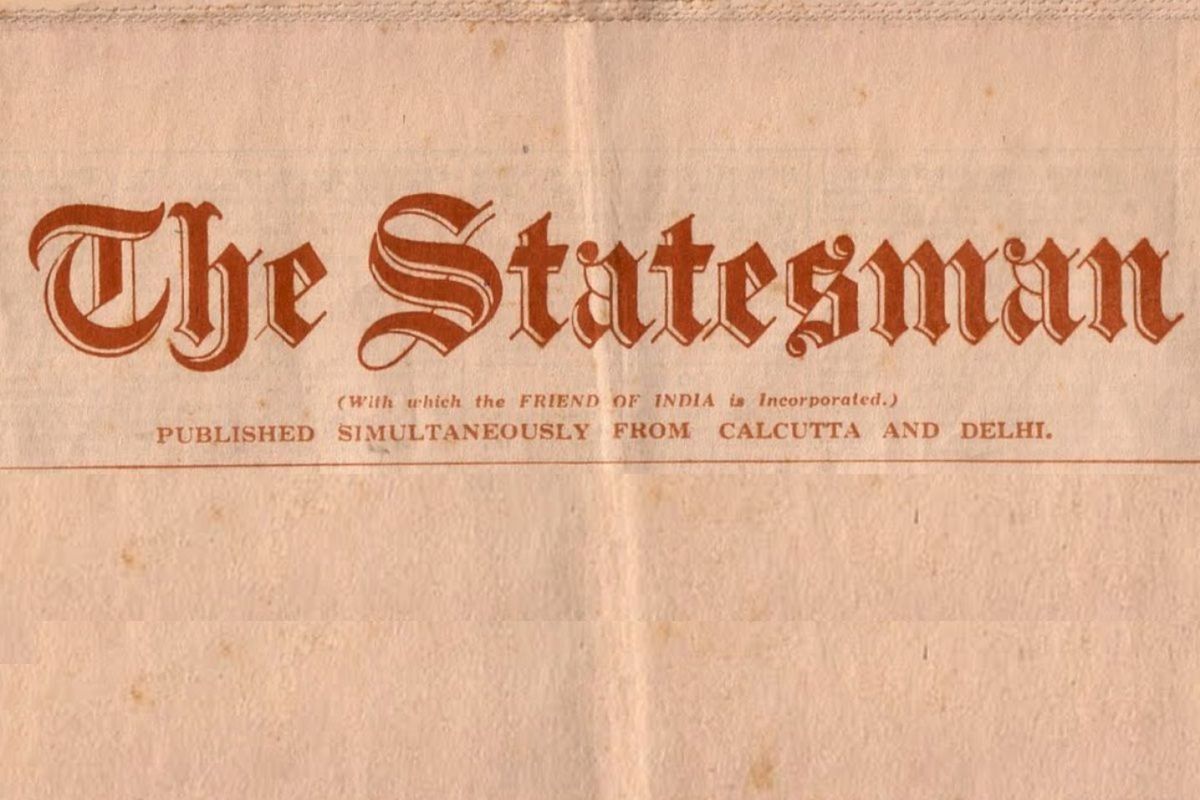A New Day, A New Dawn
There is a surprise for the readers. A special Poila Boishakh gift from none other than West Bengal chief minister Mamata Banerjee. Who has written a piece for this special edition.
On this day a century ago, these were some of the news items The Statesman readers got to read about India and the world.

OCCASIONAL NOTE
Sir Auckland Geddes’ speech on the second reading of the Profiteering Bill certainly proved that something had to be done to stop profiteering, though it did not prove that the Bill represented the best thing to do. The House of Commons passed the second reading by 251 votes to 8, and presumably the reason why the principle of the Bill was accepted by so decisive a majority may be found in a conviction that speedy action was needed and that no immediate alternative to the Bill was apparent. It might be urged with reason that a better remedy for the admitted evil would be to facilitate the return of private competition rather than to set up a new and costly system of official control calculated to kill competition and, possibly, leave the last state of the case worse than the first. Unfortunately, however, the revival of private competition will take time, and while the grass grows the steed starves. For deliberate profiteering, and more particularly for the holding up of food supplies, there can be no palliation whatever, and temporary measures of a drastic kind for the protection of the public may well be necessary pending the return of normal conditions. It can only be hoped, therefore, that the need for the Bill will be transitional, and that the measure will be so administered as to eliminate profiteering while protecting the honest trader.
NEW DIAMOND FIELD
Advertisement
An interesting discovery of diamonds was made on the Gold Coast last February. The stones occur in shallow quart gravels near the village of Abomoso, sixty-five miles north-west of Accra. The stones which have been round are small averaging approximately thirty to standard carat. They are mostly of good quality, clear and colourless. Many are perfect crystals. They vary in value from 10s. to 12s. per carat for the smaller grade, 7s. 6d. per carat for the medium grade, and 20s. to 32s. 6d. per carat for the larger grade. This is for mixed samples including all qualities of stones. Some of the larger stones are worth 70s. to 80s. per carat. Upwards of six hundred diamonds have been found merely by spanning. Sufficient work has not yet been done to prove the economic value of the discovery.
AMRITSAR CONSPIRACY CASE
LAHORE, AUG 14
The Special Tribunal reassembled today at Lawrence Hall when the hearing of the supplementary Amritsar conspiracy case was resumed. After the prosecution witnesses had given their evidence the Public Prosecutor closed the case for the Crown. The statements of the accused were then recorded by the Tribunal after which charges were framed against Brej Gopinath under-sections 121, 124A, 126B, 302 and 109 I.P.C., and against Durga Das under sections 124A and 120B I.P.C. The case was postponed to the 16th August, when the defence evidence will be heard.
MISSING SHOE-BUCKLES
It will be remembered that some time ago, Mrs. Spring-Walker, wife of Lieutenant-Colonel Spring-Walker, Cantonment Magistrate of Jhansi, charged F. Astridge, a shoe specialist of Park Street with criminal breach of trust in respect of two pairs of silver shoe-buckles. Complainant’s story was that while stopping at Spence’s Hotel, she placed an order with accused for two pairs of shoes, giving him two pairs of silver buckles which were to be sewn on to them. The shoes were in due course sent to her at Jhansi, but when she opened the parcel the buckles were missing. She first instituted a case at Jhansi, but in accused’s appeal, the High Court transferred the case to the file of the Chief Presidency Magistrate. On the last occasion it was mentioned that Mrs. Spring-Walker was ill and the case was therefore, postponed for a month. Yesterday when the case was again called, complainant was reported to be absent. The Magistrate passed order:- accused discharged; the case cannot be filed.
A NEW ROUTE TO THE BALTIC
In a couple of articles in the Berlingske Tidende, M. Steensby, Professor of Geography in the University of Copenhagen, advocates digging a canal across Danish Schleswig from Apenrade to the Lyster Dyb channel, between the islands of Sylt and Romo. It would be the shortest cut through the peninsula and the shortest route from the Swedish east coast ports to the North Sea. The whole enterprise, which was discussed as long ago as the 16th century, might consequently become not merely Danish, but Scandinavian. The canal route from the North Sea to the Baltic has always been superior to the longer route north of the Skaw and through the Sound, but the advantages of the Kiel Canal were impaired by the control of a single Great Power and its application to the special commercial and shipping interests of Hamburg
Advertisement